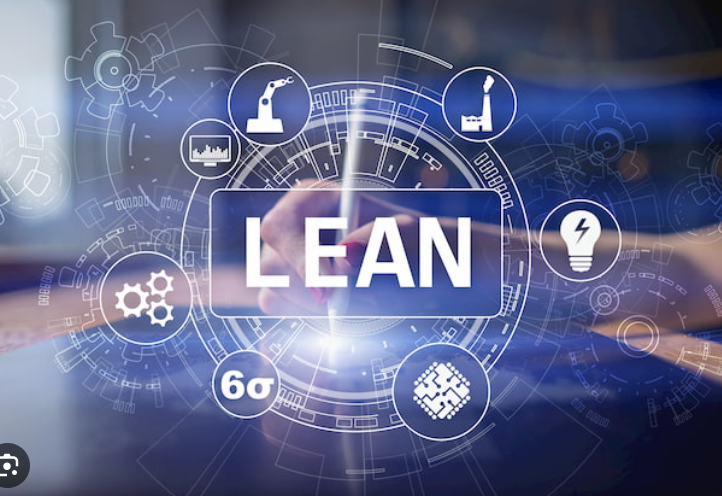Digital Transformation in Manufacturing: Embracing Industry 4.0 Technologies
- saharsh D
- May 22, 2023
- 3 min read
The manufacturing industry is undergoing a significant transformation driven by advancements in technology. Industry 4.0, also known as the Fourth Industrial Revolution, is revolutionizing the way products are designed, produced, and delivered. At the core of this transformation is the integration of digital technologies that are reshaping manufacturing processes and creating new opportunities for growth and innovation.
In this blog, we will explore the concept of digital transformation in manufacturing and the key technologies associated with Industry 4.0.

Understanding Digital Transformation in Manufacturing : Digital transformation in manufacturing refers to the integration of digital technologies and data-driven systems to transform traditional manufacturing processes into smart, connected, and agile operations. It involves leveraging technologies such as the Internet of Things (IoT), artificial intelligence (AI), robotics, cloud computing, big data analytics, and cyber-physical systems to optimize efficiency, improve productivity, enhance quality, and enable new business models.
Key Technologies of Industry 4.0:
Internet of Things (IoT): The IoT enables the connectivity of physical devices, machines, and sensors to collect and exchange data. By leveraging IoT, manufacturers can monitor and control machines, track inventory, optimize supply chains, and enable predictive maintenance. IoT enables real-time data analysis, leading to proactive decision-making and increased operational efficiency.
Artificial Intelligence (AI) and Machine Learning (ML): AI and ML technologies empower machines and systems to learn, adapt, and make intelligent decisions. In manufacturing, AI and ML are utilized for quality control, predictive maintenance, process optimization, demand forecasting, and autonomous operations. By analyzing vast amounts of data, AI-driven systems can identify patterns, detect anomalies, and optimize production processes.
Robotics and Automation: Robotics and automation technologies play a vital role in Industry 4.0. Collaborative robots, or cobots, work alongside humans to perform repetitive or dangerous tasks, increasing efficiency and safety. Automated guided vehicles (AGVs) and drones are used for material handling and logistics, while 3D printing enables additive manufacturing and rapid prototyping.
Cloud Computing: Cloud computing enables manufacturers to access and store vast amounts of data securely. It provides scalability, flexibility, and remote access to data, facilitating real-time collaboration, data analytics, and sharing of resources. Cloud-based solutions enable manufacturers to harness the power of big data and leverage advanced analytics for process optimization and decision-making.
Big Data Analytics: The proliferation of digital systems generates a massive amount of data. Big data analytics enables manufacturers to extract valuable insights from this data to drive operational improvements, optimize supply chains, and enhance customer experiences. By analyzing data in real-time, manufacturers can identify patterns, trends, and anomalies, leading to better decision-making and improved overall performance.

Benefits of Digital Transformation in Manufacturing :
Digital transformation in manufacturing offers numerous benefits to organizations:
Enhanced Efficiency and Productivity: Automation, connectivity, and data-driven systems improve operational efficiency, reduce downtime, and increase productivity. By streamlining processes, eliminating manual errors, and optimizing resource utilization, manufacturers can achieve higher production rates and improved overall efficiency.
Improved Quality and Safety: Digital technologies enable real-time monitoring, predictive maintenance, and quality control. This results in improved product quality, reduced defects, and enhanced safety for workers. AI-powered systems can detect anomalies, identify potential risks, and take preventive measures, ensuring a safer working environment.
Cost Reduction and Resource Optimization: Digital transformation enables manufacturers to optimize their supply chains, reduce waste, and lower production costs. Real-time data analysis helps in inventory management, demand forecasting, and production planning, minimizing overstocking and stockouts. Predictive maintenance prevents costly equipment breakdowns and downtime.
Flexibility and Agility: Industry 4.0 technologies enable manufacturers to respond quickly to changing market demands and customer preferences. The integration of digital systems, robotics, and automation provides the agility needed to adjust production processes, customize products, and deliver on-time. Manufacturers can easily adapt to market fluctuations, launch new products faster, and remain competitive in dynamic business environments.
Innovation and New Business Models: Digital transformation opens up new opportunities for innovation and the development of disruptive business models. Manufacturers can leverage data analytics, AI, and IoT to gain insights into customer behavior, market trends, and product performance, enabling them to create personalized products, offer value-added services, and explore new revenue streams.
Conclusion:
In conclusion, digital transformation is revolutionizing the manufacturing industry through the adoption of Industry 4.0 technologies. Embracing these digital advancements enables manufacturers to optimize efficiency, improve productivity, enhance product quality, and drive innovation. The integration of IoT, AI, robotics, cloud computing, and big data analytics empowers manufacturers to create smart, connected, and agile operations. By harnessing the power of digital transformation, manufacturers can unlock new opportunities for growth, remain competitive in the global marketplace, and meet the evolving needs of customers.
References:
https://whatfix.com/blog/digital-transformation-in-manufacturing/
-removebg-preview.jpg)



Very informative content !